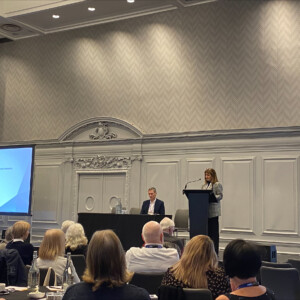 A Land Management and Property expert has backed plans for Land Reform in Scotland, but has called for more common sense and less political motives.
A Land Management and Property expert has backed plans for Land Reform in Scotland, but has called for more common sense and less political motives.
Malcolm Taylor, Director of Bell Ingram Ltd, is keen to see reforms that will allow more people in Scotland to own a greater proportion of the land, but is concerned that headline grabbing ideas such as “land caps” are politically motivated and would not make economical – or common – sense.
Last week, the Land Reform Review Group published a report setting out radical plans to change the share of land management in Scotland, including an upper limit on the amount of land that can be held by a single private landowner.
Malcolm, who is based at Bell Ingram’s Forfar office, believes the reforms are not all in the interests of the public and in many cases could cost a great deal of public money if they were to be given the go ahead.
He said: “Land Reform is important and should be embraced by all involved, but only if the reforms make financial sense and are of benefit to the public.
“Many of the reforms look very idealistic and are presumably motivated by trying to win votes rather than actually helping anyone. They could cost a lot of landowners a great deal of money, but it’s not very clear who would benefit from their loss and how.
“The ‘landcap’ may sound great in theory, but what’s more important than the amount of land is the type of land it is and what it is used for. If a piece of land is being used in a way that benefits the country and the environment, how would it make sense to change it?
“There are also a number of voluntary organisations such as the RSPB, National Trust and the John Muir Trust that own vast areas of land. Will these organisations also be impacted by the cap?
He added: “This is another government review that focuses on it being in the “public interest”, without defining what the public interest is on the subject. These types of reform cost a lot of money to implement and maintain, so it would be interesting to know where that money is coming from.”
Last week’s announcement, which also included the suggestion of a ‘land-tax’, caused a great deal of debate and anxiety amongst land owners.
Malcolm fears the reforms may lead to a loss of diversity and also raises concerns on the implications to the farming and fishing industries.
He continued: “The proposal to set upper limits on the area of land that can be owned begs the question – who decides? How big is big? Is the owner of an arable farm of 3000 acres looked at in the same way as a small estate or grouse moor owned by Trustees on behalf of a charity?
“Scotland has always had a relaxed attitude to who owns land, but will these reforms now mean that Scottishness is tested? I would hope not, as the diversity and acceptance of all is one of the fundamental characteristics of the Scots as a nation.
“There will also be concerns over how these reforms could clash with the work being done on the Freshwater Fisheries Review, the Agriculture Holdings Legislative Review and the work being done to encourage uptake in the Scottish venison trade – with the supply currently failing to meet the booming demand.”
He added: “There is a huge imbalance in the share of land ownership within Scotland; therefore changes need to be embraced by all. This is why it is so important that these changes make sense and everyone understands the consequences of them.
“All of the proposals of the Land Reform Group will come at a cost, which needs to be identified fully rather than dismissed by idealistic thinking.”
Established in 1899, Bell Ingram is a multi-disciplined firm of chartered surveyors, forestry managers, estate agents, architects, building surveyors and energy specialists. With more than 130 professional staff across 11 UK offices, the firm provides local knowledge with national coverage.
To find out more about the range of services Bell Ingram offer visit www.bellingram.co.uk.












